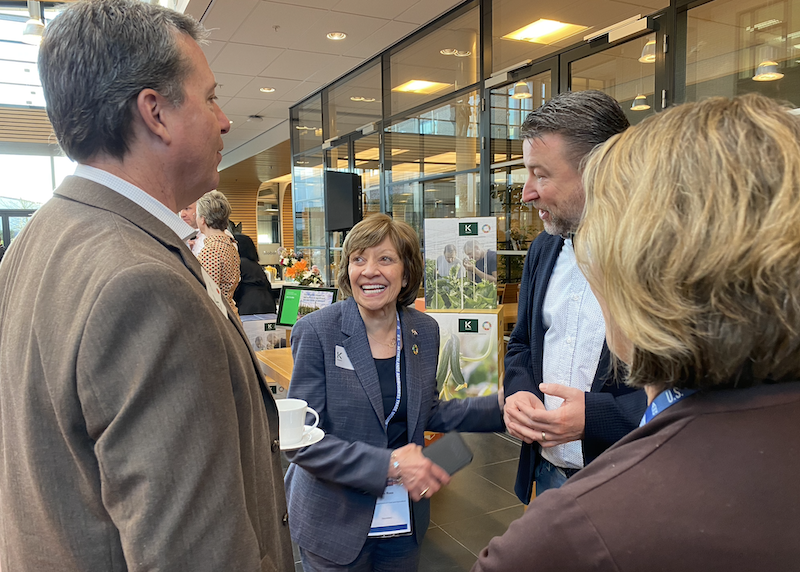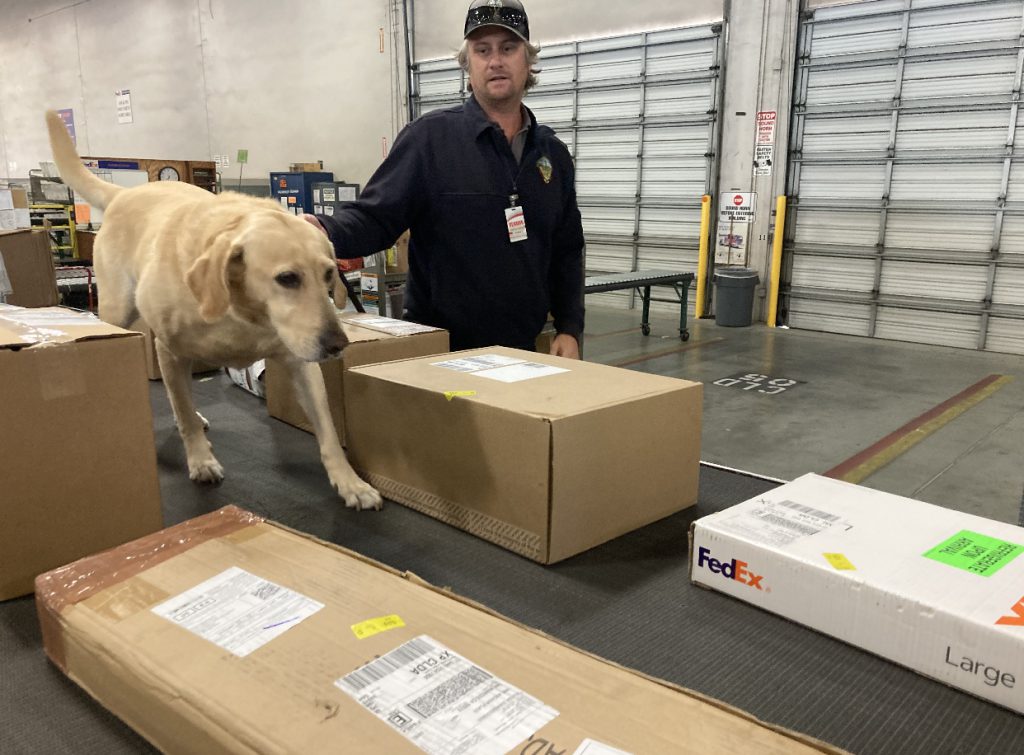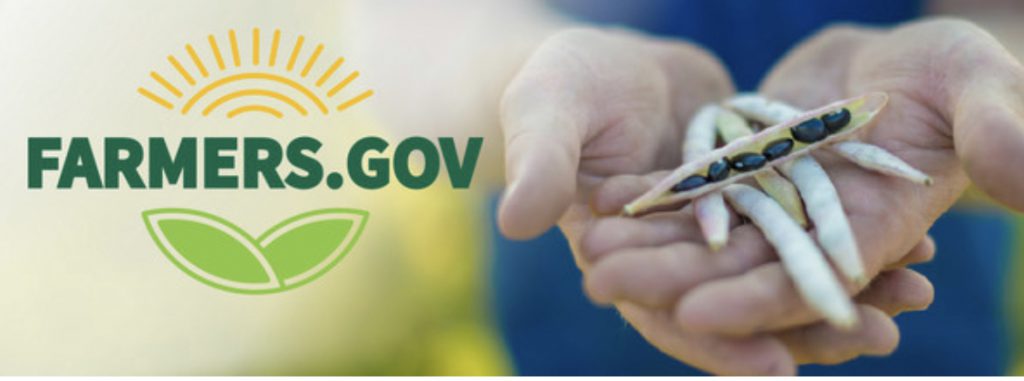-
Recent Posts
- CDFA’s Leslie Fernandez Wins ‘Women Making a Difference’ award
- Secretary Ross joins UC ANR to introduce California AgTech Alliance; funded by California Jobs First
- The Climate Resilience Strategy for California Agriculture is out for public review
- Agritourism – California’s Pumpkin Patches: Hunter Farms
- CDFA Undersecretary Christine Birdsong counts down California CRUNCH!
Recent Comments
- Micah on Secretary Ross on Water, Workforce, and the Future of California Agriculture — from AgNet West
- CA agriculture value surpasses $60B | Western Livestock Journal on Value of California Ag production tops $60 billion for first time
- Kathy de Contreras on CDFA IT department honored at “Best of California” awards
- El costo económico de las deportaciones masivas ya es visible en California - Espanol News on Nine California Counties Make Top-10 List for Ag Sales in the U.S.
- Deportations are taking a toll on California’s economy – and have only just begun – The News Beyond Detroit on Nine California Counties Make Top-10 List for Ag Sales in the U.S.
Archives
- October 2025
- September 2025
- August 2025
- July 2025
- June 2025
- May 2025
- April 2025
- March 2025
- February 2025
- January 2025
- December 2024
- November 2024
- October 2024
- September 2024
- August 2024
- July 2024
- June 2024
- May 2024
- April 2024
- March 2024
- February 2024
- January 2024
- December 2023
- November 2023
- October 2023
- September 2023
- August 2023
- July 2023
- June 2023
- May 2023
- April 2023
- March 2023
- February 2023
- January 2023
- December 2022
- November 2022
- October 2022
- September 2022
- August 2022
- July 2022
- June 2022
- May 2022
- April 2022
- March 2022
- February 2022
- January 2022
- December 2021
- November 2021
- October 2021
- September 2021
- August 2021
- July 2021
- June 2021
- May 2021
- April 2021
- March 2021
- February 2021
- January 2021
- December 2020
- November 2020
- October 2020
- September 2020
- August 2020
- July 2020
- June 2020
- May 2020
- April 2020
- March 2020
- February 2020
- January 2020
- December 2019
- November 2019
- October 2019
- September 2019
- August 2019
- July 2019
- June 2019
- May 2019
- April 2019
- March 2019
- February 2019
- January 2019
- December 2018
- November 2018
- October 2018
- September 2018
- August 2018
- July 2018
- June 2018
- May 2018
- April 2018
- March 2018
- February 2018
- January 2018
- December 2017
- November 2017
- October 2017
- September 2017
- August 2017
- July 2017
- June 2017
- May 2017
- April 2017
- March 2017
- February 2017
- January 2017
- December 2016
- November 2016
- October 2016
- September 2016
- August 2016
- July 2016
- June 2016
- May 2016
- April 2016
- March 2016
- February 2016
- January 2016
- December 2015
- November 2015
- October 2015
- September 2015
- August 2015
- July 2015
- June 2015
- May 2015
- April 2015
- March 2015
- February 2015
- January 2015
- December 2014
- November 2014
- October 2014
- September 2014
- August 2014
- July 2014
- June 2014
- May 2014
- April 2014
- March 2014
- February 2014
- January 2014
- December 2013
- November 2013
- October 2013
- September 2013
- August 2013
- July 2013
- June 2013
- May 2013
- April 2013
- March 2013
- February 2013
- January 2013
- December 2012
- November 2012
- October 2012
- September 2012
- August 2012
- July 2012
- June 2012
- May 2012
- April 2012
- March 2012
- February 2012
- January 2012
- December 2011
- November 2011
- October 2011
- September 2011
- August 2011
- July 2011
- June 2011
Categories
- AG Vision
- Agricultural Education
- Agricultural Marketing
- Alternative Fuels
- Animal health
- Animal Welfare
- Asian Citrus Psyllid
- Biodiversity
- Border stations
- BSE
- Cannabis
- Cannella Panel
- Climate Change
- Climate Smart Agriculture
- Community-based Food System
- Conservation
- Dairy
- Drought
- Environment
- Fairs
- Farm Bill
- Farm Labor
- Farmers' Markets
- Fertilizer
- Food Access
- Food Safety
- Food Waste
- Glassy-winged Sharpshooter
- Growing California
- Healthy soils
- HLB
- Hydrogen
- Integrated Pest Management (IPM)
- Invasive Species
- Light Brown Apple Moth
- Livestock ID
- Measurement Standards
- Nutrition
- Organic agriculture
- Pierce's Disease
- Pollinators
- Specialty Crops
- State Board of Food and Agriculture
- Succession Planning
- Trade
- Uncategorized
Pages

Earth Day on April 22 — video message from Secretary Ross on farming, ranching and soil health
Posted in Uncategorized
Leave a comment
Visit to the Netherlands highlights trade and climate collaboration
By CDFA Secretary Karen Ross
Secretary Ross is leading a climate and trade delegation to Denmark and the Netherlands to focus on building partnerships for California.
(Photos: Right — Secretary Ross with US Ambassador Shefali Razdan Duggal, USDA Under Secretary Alexis Taylor, and Josette Lewis of the Almond Board of California. Below — discussing sustainable pest management solutions at Koppert)
The Netherlands portion of California’s Climate Smart Ag Policy Mission began with a focus on trade collaboration and innovation. Joining with the USDA Agricultural Trade Mission to the Netherlands, we were welcomed by U.S. Ambassador Shefali Razdan Duggal and USDA Under Secretary for Trade and Foreign Agricultural Affairs Alexis Taylor, who emphasized the Netherlands as an important trading partner as well as a partner on climate and innovation.
Our visits to Royal Steensma’s Food Innovation Academy and Koppert focused on innovation, both within the food industry and in agricultural production.
Royal Steensma highlighted bakery ingredient innovations and also workforce development opportunities provided to young adults and college students to improve engagement and career development within the food system. Royal Steensma is a supplier of a wide range of bakery products that include an array of California almond ingredients.
At Koppert, we had a chance to engage on sustainability – discussing research and innovation to provide natural solutions for growers and farmers on sustainable pest management. In “Partnering with Nature,” Koppert is working to provide biological solutions to agricultural sustainability challenges and is a strong potential partner in assisting the agricultural sector on California’s Sustainable Pest Management Roadmap.
As we continue our Netherlands visit – I look forward to engaging with the Ministry of Agriculture, Nature and Food Quality and visiting with producers focusing on circular agriculture and ag tech partnerships.
Posted in Uncategorized
Leave a comment
California’s Dog Teams help protect environment, food supply and plant health
April is Invasive Plant Pest and Disease Awareness Month
(Photo — inspection dog Yeti on the job in San Diego County, alongside handler Jeremy Partch)
The purpose of California’s Dog Teams, a joint program between CDFA, the USDA, and county agricultural commissioners, is to enhance inspection and surveillance activities related to plant products entering the State of California via parcel delivery facilities and airfreight terminals, to help protect the food supply, the environment, and plant health.
Most dogs in the program have been rescued through animal shelters, breed rescue groups, and newspaper/internet ads.
Dogs selected for the program have been screened for high food drive, sociability, intelligence, physical soundness and low anxiety levels.
Dogs and handlers must complete an intense eight-week training program at the USDA National Detector Dog Training Center (Newnan, Georgia) prior to beginning inspections in California. Dogs are initially trained to detect the following five target odors in parcels: citrus, apple, mango, guava and stone fruit. Once the teams have mastered the five target odors, handlers work with their partners to increase their repertoire to plants, soil, insects, etc.
Once fully trained, the dogs alert on marked and unmarked parcels that contain agricultural products. Trained biologists then inspect the packages for any unwanted plant pests, including insect species, diseases or other harmful organisms that may pose a threat.
Currently, California Dog Teams conduct inspections at the US Postal Service, UPS, FedEx, OnTrac, and other private parcel carriers throughout California.
California Dog Teams operate out of the following counties: Alameda, Contra Costa, Fresno, Los Angeles (3 teams), Sacramento (2 teams), San Bernardino, San Diego (2 teams), Santa Barbara and Santa Clara.
Over the life of the program, Dog Teams have alerted on thousands of marked and unmarked parcels containing agricultural products, and as result a number of those have been cited for violation of state and federal plant quarantine laws and regulations.
Posted in Uncategorized
Leave a comment
Mark your calendar — Earth Day webinar on biodiversity coming on April 21
SCROLL DOWN to watch a recording of the webinar
In recognition of Earth Day this week CDFA is hosting a webinar on biodiversity on farms and ranches. We hope you’ll join us!
NOTE — new Zoom log-in information:
Link to the webinar: https://us02web.zoom.us/j/84292720401
ID: 842 9272 0401
Passcode: Cdfa!220
Phone Access code: 53510063 The webinar is at 12 noon.
Please disregard the log-in information in the infographic.

Watch the a recording of the webinar below
Posted in Uncategorized
Leave a comment
Coming on April 20th – Virtual Question-and-Answer Session on USDA’s Disaster Assistance to Help California Farmers and Agriculture Communities Recover
Was your California farming operation impacted by a natural disaster? Or do you live in a California agricultural community that was impacted? Join us for a virtual question-and-answer session to learn more about programs and resources that may be available to you.
What: Question-and-answer session with USDA and California Department of Food and Agriculture about Disaster Assistance in California
When: Thursday, April 20, 2023 at 8 a.m. PT
Where: Virtual via Microsoft Teams. Click here to join.
This session builds on the California disaster assistance webinar hosted last week by the U.S. Department of Agriculture (USDA) and California Department of Food and Agriculture (CDFA) that covered programs that can help farmers and agricultural communities impacted by current disasters.
In this session, you’ll be able to submit questions to USDA’s Farm Production and
Conservation Deputy Under Secretary Gloria Montaño Greene and CDFA’s Undersecretary Christine Birdsong.
If you weren’t able to attend the webinar, you can watch the recording here.
Additional Resources
Other resources are available to producers, including the online Disaster Assistance Discovery Tool, Disaster Assistance-at-a-Glance fact sheet, and Loan Assistance Tool. For rural communities, there are USDA Rural Development (RD) programs and services that can help rural residents, businesses and communities impacted by disasters and support long-term planning and recovery efforts. Please visit the Resource Guides that are availableinEnglish and Spanish.
For more information on resources to recover and rebuild, visit your local USDA service center.
Posted in Uncategorized
Leave a comment
Denmark – Changing a Carbon Footprint to a Handprint for Climate Sustainability
By CDFA Secretary Karen Ross
Secretary Ross is leading a climate and trade delegation to Denmark and the Netherlands to focus on building partnerships for California.
As the EU moves forward on an ambitious green transition, Denmark is a leading example on how innovation, green farm technology, and data sharing is supporting agriculture’s pathway to carbon neutrality.



Denmark has set a goal of reducing carbon emissions by 70 percent by 2030, compared to 1990 levels. The country has one of the world’s highest percentages of cultivated land and high levels of agricultural exports – 90 percent of its pork production and 80 percent of its dairy production. The government and industry are committed to delivering on climate action, not just for Denmark but for the world as well.
Innovation is a key to moving Denmark’s carbon footprint (impact) to a handprint (mitigation), enabling sustainability to be a value proposition and market driver for consumers. Technology-driven solutions on fertilizer strategies, water management, and cropping systems have considerable mitigation potential.
Our visit to Denmark allowed us to meet with a variety of companies and organizations. Chr. Hansen and Novozymes are using natural and biological solutions to provide important tools for the agricultural sector. Agro Food Park and Bio Innovation Institute are providing platforms for launching and supporting new agricultural businesses within the green transition – Robotti, SEGES Innovation and Cordulus. We also met with farmers Holger Poulsen and Peter Melchoir, each of whom are passionate innovators in helping move their industry sector forward on local and global sustainability.
I would like to thank our colleagues at the Danish Agriculture and Food Council, the Danish Veterinary and Food Administration and the Danish Trade Council for an amazing visit. We look forward to strengthening our climate partnership.
Posted in Uncategorized
Leave a comment
Secretary Ross in the Netherlands and Denmark — trade visit begins with meeting with agriculture officials
CDFA Secretary Karen Ross is leading a climate and trade delegation to Denmark and the Netherlands to focus on building partnerships for California.
The Danish Agriculture and Food Council has committed to the goal of being carbon-neutral by 2050. This strategy not only focuses on increasing food production on existing lands, but also increasing soil carbon. Agricultural technology and science-based tools are critical to help further climate action on natural and working lands.
Denmark and the Netherlands are important climate partners for advancements and innovations within agricultural technology and science based-tools to support a circular agricultural economy. From controlled-environment agriculture to smart technology in fruit cultivation for more environmentally sustainable crop production, continuing partnerships and exchanges will further assist California in gaining knowledge to support a more sustainable, diverse, and resilient specialty crop sector.
While in the Netherlands, Secretary Ross will join a USDA Agricultural Trade Mission to highlight agricultural trade and California’s climate action.
Posted in Uncategorized
Leave a comment
Broadband for All Workshops start tomorrow
The internet is critical to everyday life. Yet 1 out of 5 Californians lack access to affordable, reliable broadband service, devices, and the skills to use them.
As a result, millions in our state are unable to access essential government services and realize other social and economic benefits. This gap is referred to as the “digital divide” which most impacts rural residents, low-income households, seniors, the disabled, veterans, those with low levels of literacy and language barriers, and tribal communities, among other groups.
Broadband for All is the state’s overarching program to close the digital divide and foster digital equity in our communities. The state has invested billions of dollars to achieve Broadband for All and ensure that every resident has access to economical and dependable internet, devices, and skills-training. But more needs to be done.
CDFA is part of the State Digital Equity team led by the Department of Technology and the California Public Utilities Commission. The agencies are working together to offer a series of planning workshops. There will be 20 of them. The first ones are this week. Local organizations and community members are urged to attend and encouraged to make their voices heard in the development of a five-year action plan to determine how future federal dollars are allocated to address digital inequities.
Below is a list of workshops this month.
| Date | Location | Registration Link |
| April 14 | Merced – (Merced College – Library) | Register |
| April 15 | Fresno – (Fresno City College, Old Administration Building – Cafeteria) | Register |
| April 21 | San Diego – (San Diego Central Library) | Register |
| April 27 | Chico – (Chico Masonic Family Center) | Register |
| April 28 | Santa Rosa – (Santa Rosa Veterans Memorial Building) | Register |
Please reach out to digitalequity@state.ca.gov for more information.
Posted in Uncategorized
Leave a comment
Moving cows out of harm’s way due to flood risks — CDFA working with dairy farmers, ranchers and government partners to help relocate cows and keep milk flowing
While California’s boon of rain and snow this year is a much-needed respite from drought as well a bit of a buffer against the hotter and drier conditions the state is facing over the long-term, the wet weather is bringing risks of flooding to pockets of California, and dairies in Tulare County and neighboring Kings County are already contending with high water.
In response to that, CDFA is working with farmers, ranchers and government partners to make sure cows are protected and can keep providing milk if and when they’re moved from their home dairies. CDFA staff have put in long hours to provide farmers and pet owners with the most up to date flood information, to connect local and state emergency managers with on-farm needs, and have helped find livestock transportation resources when the water was quickly rising.
According to local livestock haulers, thousands of cows have been relocated in the two counties, with a number of them lactating dairy cows moved mostly to neighboring dairy farms as local producers are working together tirelessly to weather the crisis. Local environmental officials, in partnership with CDFA, have issued permits facilitating safe milk production at the new locations.
Federal regulation is also in place for milk products, and CDFA, which has dairy food safety oversight in the state, is acting as a liaison with the Food and Drug Administration to ensure that products from affected areas may continue to move through interstate commerce.
Tulare County and Kings County collectively represent one of the largest milk production areas in the nation, producing about 37 percent of all milk in California, which is the largest milk producing state in the country.
Posted in Uncategorized
1 Comment
Reminder — CDFA partnering with USDA tomorrow to co-host disaster assistance webinar
CDFA and the USDA are hosting a webinar to help California farmers and agricultural communities impacted by current disasters understand programs and resources that may be available to them.
If your farming operation in California was impacted by a natural disaster or if you live in an agricultural community impacted and are looking for resources to recover and rebuild, please join us for a webinar that will be hosted on Microsoft Teams on Tuesday April 11, 2023 at 9 a.m. PT.
During the webinar, you’ll hear from:
- USDA: Farm Production and Conservation Deputy Under Secretary Gloria Montaño Greene, Farm Service Agency State Executive Director Blong Xiong, Natural Resources Conservation Service State Conservationist Carlos Suarez, and Rural Development State Director Maria Gallegos Herrera; and
- CDFA: Undersecretary Christine Birdsong.
The webinar is free to join. You can join on your computer or via the Teams app on your smartphone. You do not have to RSVP in advance to attend. Attendees will have a chance to submit written questions during the event.
California Disaster Assistance Webinar
April 11, 2023 at 9 a.m. PT
Join the meeting (using Microsoft Teams)
Add the meeting to your calendar: Google Calendar, iCalendar, and Outlook
Posted in Uncategorized
4 Comments







